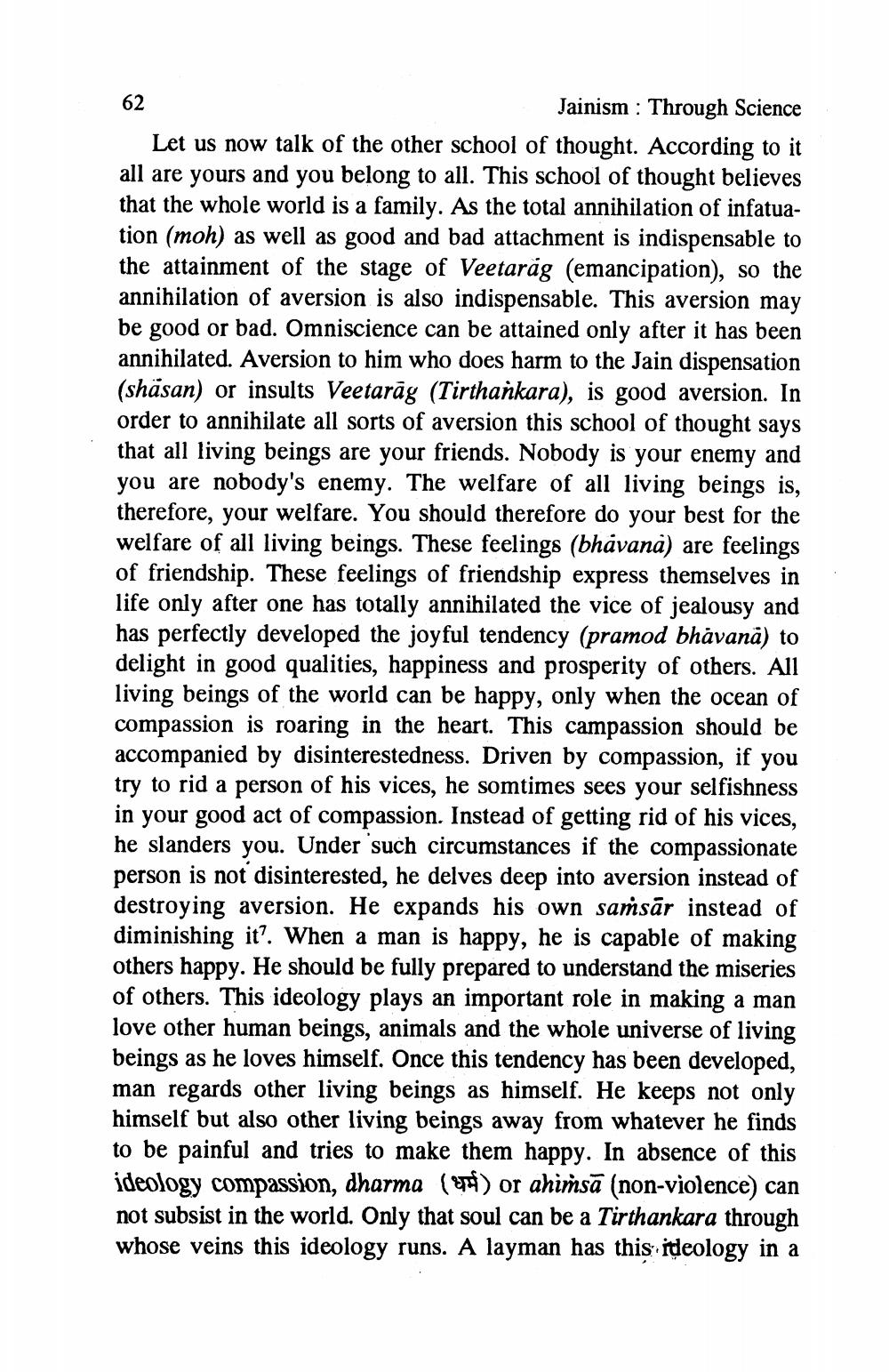________________
62
Jainism Through Science Let us now talk of the other school of thought. According to it all are yours and you belong to all. This school of thought believes that the whole world is a family. As the total annihilation of infatuation (moh) as well as good and bad attachment is indispensable to the attainment of the stage of Veetarag (emancipation), so the annihilation of aversion is also indispensable. This aversion may be good or bad. Omniscience can be attained only after it has been annihilated. Aversion to him who does harm to the Jain dispensation (shäsan) or insults Veetarag (Tirthankara), is good aversion. In order to annihilate all sorts of aversion this school of thought says that all living beings are your friends. Nobody is your enemy and you are nobody's enemy. The welfare of all living beings is, therefore, your welfare. You should therefore do your best for the welfare of all living beings. These feelings (bhavana) are feelings of friendship. These feelings of friendship express themselves in life only after one has totally annihilated the vice of jealousy and has perfectly developed the joyful tendency (pramod bhavana) to delight in good qualities, happiness and prosperity of others. All living beings of the world can be happy, only when the ocean of compassion is roaring in the heart. This campassion should be accompanied by disinterestedness. Driven by compassion, if you try to rid a person of his vices, he somtimes sees your selfishness in your good act of compassion. Instead of getting rid of his vices, he slanders you. Under such circumstances if the compassionate person is not disinterested, he delves deep into aversion instead of destroying aversion. He expands his own samsar instead of diminishing it. When a man is happy, he is capable of making others happy. He should be fully prepared to understand the miseries of others. This ideology plays an important role in making a man love other human beings, animals and the whole universe of living beings as he loves himself. Once this tendency has been developed, man regards other living beings as himself. He keeps not only himself but also other living beings away from whatever he finds to be painful and tries to make them happy. In absence of this ideology compassion, dharma () or ahimsa (non-violence) can not subsist in the world. Only that soul can be a Tirthankara through whose veins this ideology runs. A layman has this ideology in a




